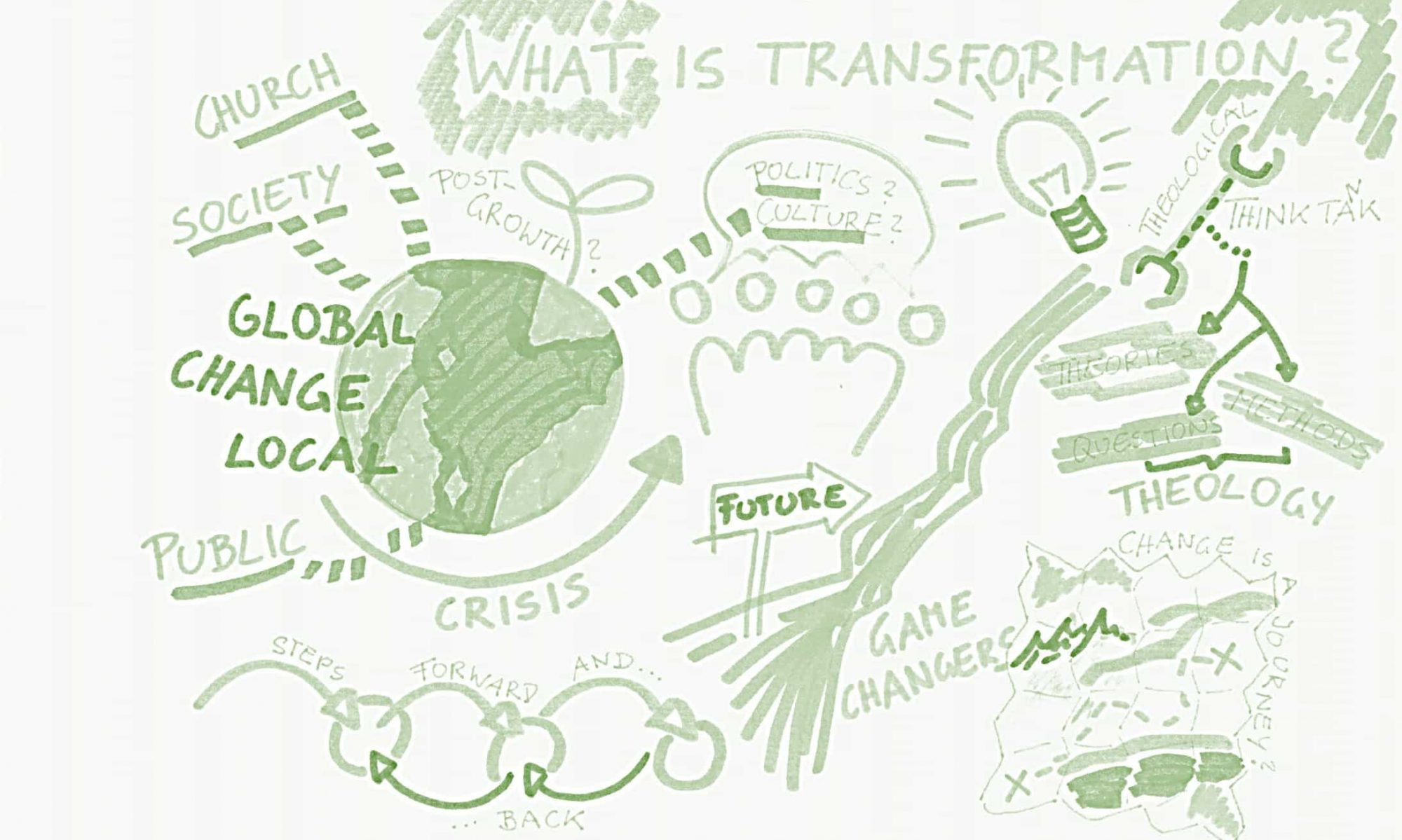The research group “European Graduate School: Theology in religious, cultural and political Processes of Transformation” met on March 21, 2022 in a virtual workspace for a study day. The cross-university project of the theological faculties of the University of Erfurt, the Paris Lodron University Salzburg and the Katholieke Universiteit Leuven deals with ecclesiastical and theological transformation processes in different facets.
MULTIPLE PERSPECTIVES ON TRANSFORMATION PROCESSES
In the morning, researchers from all three locations presented research projects related to the common framework theme. Gregor Maria HOFF (Salzburg) posed the question of the dissolution of Roman Catholicism based on the multiple global, social and cultural shifts. The discussion was not only about the processual form of this dissolution, but also about the disclosure of the claim to universality of Roman Catholicism as a particular form of Catholicism.
Judith GRUBER (Leuven) presented the project “Dissenting Church”, in which the concept of “dissent” is developed as an epistemological and ecclesiological principle. Based on the concept of dissent of the French philosopher Jacques Rancière, the focus is on the polyphony and ambiguity of church tradition, church action and life as well as their relevance for ecclesiology.
Benedikt KRANEMANN (Erfurt) reflected on the basis of current theological anthologies on an “Erfurt theology” that has been dealing with the field of tension between ecclesiastical developments and a secular environment for several decades. Cultural and social developments change theological discourses. Various dissertation and other research projects of the Faculty of Theology at the University of Erfurt deal with partial aspects of these ecclesiastical and theological transformation and dissolution processes.
Observations on religious and ecclesiastical transformation processes were then discussed in small groups. The focus was on a guiding category of the research group: that of transformation. To what extent is the term suitable to describe the perceptible processes of change and dissolution? Theological research must develop new hermeneutical approaches for this. While in the morning session we dealt with transformation processes from a more general (theological) perspective, the afternoon session of the study day focused on the Amazon Synod and its significance for the world church as a special aspect.
THE AMAZONIA SYNOD AND ITS TRANSFORMATIVE POTENTIAL
A presentation of the anthology “Laboratorium Weltkirche. The Amazon Synod and its Potentials” (more information here), which was published in the series Quaestiones Disputatae, was the theoretical basis for the in-depth exchange. The contributions of the volume discuss the Amazon Synod from an ecclesiological (relationship between local and universal church), cultural (inculturation), social (liberation theology) and ecological perspective (postcolonial discourse), whereby the editors especially call to mind the mutual conditionality of these aspects.
The significance of the synod for one’s own theological thinking, transnational issues as well as the challenges and limits of a synod that is received worldwide were central aspects of the discussion. The practical relevance of these issues could be made clear by Professor Sr. Birgit WEILER (Jesuit University in Lima, Peru): she participated in the Amazon Synod in the Vatican (October 2019). Through her many experiences and personal commitment, she was able to give a particularly good insight into the situation of the Church in the Amazon. The following topics emerged as the main themes of her narratives and the subsequent discussion: the climatic changes in the Amazon region reveal central ecological tipping points, whose theological relevance is further intensified by an intertwining of habitat and religious space (everything is interrelated). The ecological question is closely tied to the question of power and to the insufficiently perceived interests of indigenous peoples. It is the task of the Church of Latin America, he said, to create worldwide awareness of the situation in the Amazon, as well as to provide a platform where local people can contribute their own culture and voice. Especially in the final document of the synod, the voice of indigenous peoples is strongly present. The Synod in Rome would not have had such depth had it not been for the territorial meetings that took place beforehand and the strong advocacy of indigenous peoples. In addition, there were repeated pleas for a stronger role for women in leadership positions.
The exciting reports of Prof. Sr. Birgit Weiler enriched our study day very much and broadened our perception and theological reflection regarding the Amazon Synod in particular and synodal processes in general.
Sarah Pieslinger and Elisabeth Höftberger
for the team of the European Graduate School
